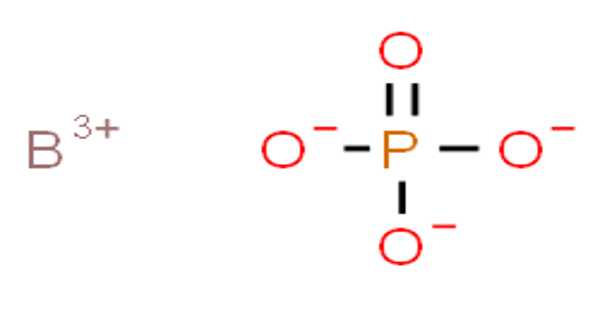Premature babies are frequently separated from their parents and placed in intensive care in an incubator. For several weeks, he or she will be subjected to routine medical procedures that can be painful, without being relieved by excessive amounts of pharmaceutical painkillers, which are harmful to his or her development. So, what can we do to help the baby?
A team from the University of Geneva (UNIGE), in collaboration with the Parini Hospital in Italy and the University of Valle d’Aosta, discovered that when the mother spoke to her baby during the medical intervention, the signs of the baby’s expression of pain decreased and his oxytocin level increased significantly. These findings, which will be published in the journal Scientific Reports, highlight the importance of parental presence with premature babies, who are subjected to intense stress from birth, and show that this presence has a real impact on their well-being and development.
Premature babies are separated from their parents and placed in an incubator, often in intensive care, as soon as they are born before 37 weeks of gestation. They must endure daily medical interventions to keep them alive (intubation, blood sampling, feeding tube, and so on), which may have an impact on their development and pain management. What’s the problem? It is not always possible to relieve them with pharmaceutical painkillers due to the significant short and long-term side effects on their neurological development. Wrapping, restraint, sugar solutions, or non-nutritive sucking with a teat are some other ways to relieve the baby.
A team observed that when the mother spoke to her baby at the time of the medical intervention, the signs of the baby’s expression of pain decreased and his oxytocin level, the hormone involved in attachment and also linked to stress, increased significantly, which could attest to better pain management.
However, studies have shown that the presence of a mother or father has a real calming effect on the child, particularly through emotional modulations of the voice, for several years now. This is why Didier Grandjean’s team, full professor at the Psychology Section of the Faculty of Psychology and Educational Sciences and at the UNIGE’s Swiss Center for Affective Sciences, has been interested in the early vocal contact between the mother and the premature baby, as well as the impact of the mother’s voice on the management of pain caused by the routine practices required for premature babies.
Including the mother in the heel prick
To put this theory to the test, the researchers followed 20 premature babies at the Parini Hospital in Italy and asked the mother to be present during the daily blood test, which involves extracting a few drops of blood from the heel. “We focused this study on the maternal voice because it is more difficult for the father to be present in the first days of life, due to working conditions that do not always allow days off,” says Dr. Manuela Filippa, a researcher in Didier Grandjean’s group and the study’s first author.
The study was carried out in three phases over three days, allowing for comparison: the first injection was given without the presence of the mother, the second with the mother talking to the baby, and the third with the mother singing to the baby. The order of these conditions fluctuated at random. “The mother began talking or singing five minutes before the injection, during the injection, and after the procedure for the study,” says the Geneva researcher. We also measured the intensity of the voice to account for background noise, as intensive care is frequently noisy due to ventilation and other medical devices.

Signs of pain expression significantly reduced
First, the researchers looked to see if the baby’s pain level decreased in the presence of the mother. They used the Preterm Infant Pain Profile (PIPP) to accomplish this, which establishes a coding grid between 0 and 21 for facial expressions and physiological parameters (heartbeat, oxygenation) that attest to the baby’s painful feelings. “In order to code the behavior of premature babies, we filmed each blood test and judged the videos ‘blind,’ by trained personnel, without sound, so we didn’t know whether or not the mother was present,” Didier Grandjean explains.
The results are significant: when the mother is absent, the PIPP is 4.5, but it drops to 3 when she speaks to her baby. “The PIPP increases to 3.8 when the mother sings. This difference between the spoken and singing voice can be explained by the fact that when singing, the mother adapts her vocal intonations less to what she perceives in her baby because she is constrained by the melodic structure, which is not the case when she speaks” The Geneva professor emphasizes this point.
Maternal voice induces an increase in oxytocin
The researchers then investigated what happens to the baby when it hears its mother speak. “We quickly turned to oxytocin, the so-called attachment hormone, which previous research has already linked to stress, separation from attachment figures, and pain,” Dr. Manuela Filippa explains. Using a painless saliva sample before the mother spoke or sang and after the heel prick, the research team discovered that when the mother spoke, oxytocin levels increased from 0.8 picograms per milliliter to 1.4 picograms per milliliter. “This is a significant increase in terms of oxytocin,” she says.
These findings demonstrate the importance of the mother’s presence during painful medical procedures for premature babies. “We show here how important it is to bring parents and children together, especially in the delicate context of intensive care,” Manuela Filippa emphasizes. “Furthermore, parents can act and feel involved in helping their child to be as well as possible, which strengthens the essential attachment bonds that are taken for granted in a full-term birth,” Didier Grandjean concludes.















